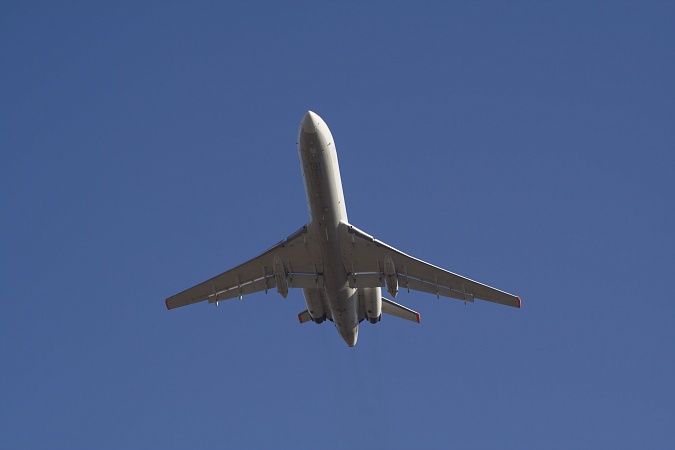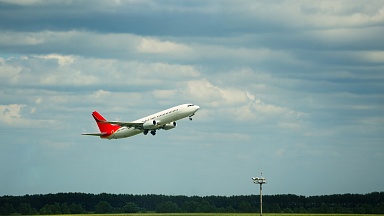Amazon is reported to be planning to acquire a significant number of long-range, wide-body freighters that could fly goods from China and the Asia Pacific region to the US, to reduce its exposure to any delays and bottlenecks at major box ports such as those currently affecting global supply chains.
The company is said to be seeking more than 10 refurbished Airbus A330-300 aircraft and an unspecified number of used Boeing 777-300ERs while also looking to fill crew positions for the planes, according to Bloomberg, quoting people familiar with the matter.
However, the sources did not indicate whether the e-commerce giant plans to purchase or lease the aircraft nor who will supply them, while no information was disclosed either on the timeframe for their entry into service.
Amazon has declined to comment.
It is thought that Amazon is seeking aircraft that have been already converted from passenger aircraft into freighters. A converted cargo version of the B777-300 passenger aircraft – the B777-300ERSF – is due to enter service for the first time next year or in 2023, converted by Israel Aerospace Industries (IAI) for GECAS. It will be able to carry an estimated 25% more volume than Boeing’s existing B777 production freighter and is emerging as an heir to the aircraft manufacturer’s B747 ‘jumbos’, which have been the air freight industry workhorse for decades but are being dropped from production from next year.
Operating long-range freighters would allow Amazon to establish an ex-Asia airbridge, channelling shipments directly into airline arm Amazon Air’s US network of dedicated airport hubs, which are strategically located within 160 km of more than 70% of the US population. This would reduce the risk of delays at congested seaports and overall simplifying and speeding distribution and delivery processes to end-consumers.
It would also be a further step in Amazon’s ongoing strategy of taking greater control of its logistics requirements and generate more direct competition with the likes of UPS and FedEx.
Fast-track growth
A recent study by DePaul University’s Chaddick Institute for Metropolitan Development, based in Chicago revealed that Amazon Air increased its activity in the US by 17% between February and August this year, with the operation on average of more than 160 flights daily over the period. Its current fleet stands at around 75 aircraft, largely made up of B767s, supported by B737s.
The remainder of 2021 and early-2022 will almost certainly bring sustained expansion at Amazon Air, the study noted, adding: “By early 2022, we expect that significant growth at CVG (the US$1.5 billion air hub facility opened in August) will provide a clearer indication of Amazon Air’s plans for that hub. It remains to be seen how quickly CVG emerges as the ‘superhub’ that some have predicted, considering the airline’s apparent desire to remain highly decentralised. That said, there have been numerous reports that the hub will have the capacity to handle 100+ planes and 200 daily flights, so its potential is clear.”
The study forecasts that Amazon will expand flight operations by another 12-14%, bringing its daily total to more than 180 by January 2022, not including flights by partner airlines – which, too, are likely to grow more numerous.
The study also predicted that Amazon Air will make “more deliberate moves” into international markets, although the direction this will take remains unclear.
“We anticipate Leipzig to be a focal point of that expansion (where the company established its first Amazon Air hub in Europe in November last year) although Amazon’s apparent penchant for using contractors makes tracking its European moves more difficult. Amazon’s operation within Europe may already be larger than many realize.”
ASL Ireland Airlines is reported to be operating scheduled B737-800F flights on behalf of Amazon to several European cities.
Strong interest in Airbus freighters
Earlier this month, international aircraft leasing company Avolon announced a significant commitment to the global air freighter market “to capitalise on the growth in e-commerce”, signing an agreement with Israel Aerospace Industries (IAI) to be IAI’s launch customer for its Airbus A330-300 freighter conversion programme. The agreement will see Avolon take 30 A330-300 passenger to freighter aircraft conversion slots with IAI between 2025 and 2028.
Meanwhile, European aircraft manufacturer Airbus reports “a lot of interest even before the pandemic and since the start of the pandemic” for its freighter aircraft since it formed a strategic partnership with ST Aerospace (Singapore) and EFW (Dresden) to design a new range of passenger to freighter (P2F) converted aircraft. Its A330-300P2F and A330-200P2F programmes have made further recent progress, with orders and deliveries for DHL, Egyptair, and lessors CDB and Altavair.
Airbus says “the P2F business is very healthy at the moment”, with “high levels of interest”. But Airbus marketing executive Crawford Hamilton noted: “As a P2F is a long-term commitment, the demand is not short-term driven by the crisis but the larger long-term requirements of a growing market – and one that will continue to grow with such things as our now-familiar on-line purchasing habits.”





